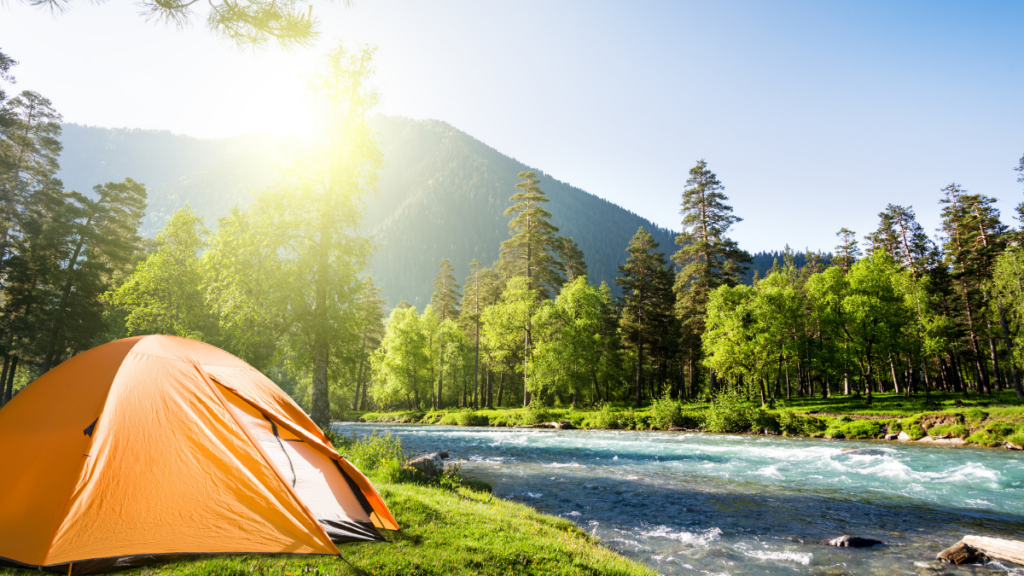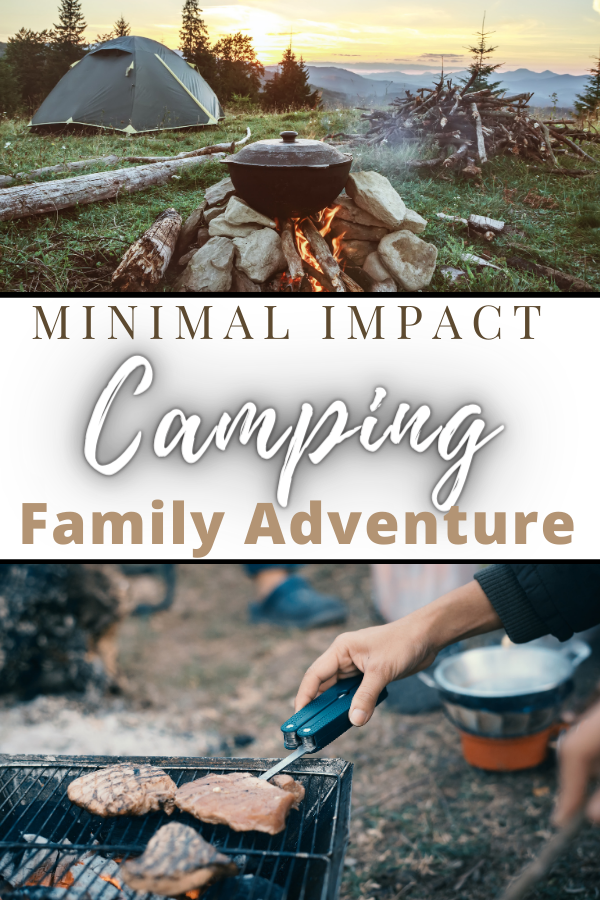
7 Simple Minimal Impact Camping Rules to Obey
If you are a camper then you probably are also a wilderness lover. True nature lovers and wilderness fans embrace the outdoor lifestyle. But there’s a bit more to it than that. There’s planning of course but that’s not what I am talking about either. A true love of nature breeds awe and respect for it. It also means that you strive to live a lifestyle where exploring nature and the great outdoors is synonymous with minimal impact camping.
Minimal impact camping involves planning, respect and and care.
Whether it’s the sound of raindrops on a tent’s canopy, the smell of a campfire, or the nightly serenade of wolves or coyotes, camping is nothing if not relaxing and memorable. I mean there’s always the setup and the packing and that part can be a lot of work. But, once you are there it is pretty blissful in my opinion. Being outside, sleeping under the stars is spiritual and magical.
Perhaps it’s those early morning hikes along a spring trail, the lure of a lake or just family time away from the cell phone, business and the grind of day-to-day obligations that brings you back.
It really doesn’t matter what the allure is, it’s the outdoors, a place where everyone owns a slice, regardless of economic challenges, age, race or religion. It’s ours if we’re willing to experience it. So be considerate enough to think about others who may pitch their tent on the same spot perhaps in future.
Every camper knows the anguish of arriving at a trashed campsite. Bags are blowing in the breeze, cans and boxes litter about and garbage floats in the trout stream you were ready to fish. Litter can be picked up, but unknowingly poisoning the wildlife’s water, damaging trees and altering the ecosystem means future generations will never share the same experience.
Why not leave your campsite in as good, or even better shape than you found it by adhering to a few simple rules that take very little effort? It’ll make the experience better for you because the area won’t become trashed before you leave and more pristine for the next group of campers as they pitch their tent. Someday you might be the person who gets to experience, firsthand, the benefits of a previous group’s minimum-impact camping.
Table of Contents
Here are 7 simple rules to obey.
1. Watch Your Trash
If you pack it in, pack it out. Don’t leave any trash behind. Haul out anything you find that has been left by others.
2. Use the Existing Site
If possible, camp in an existing campsite, which is often mandatory in many areas anyway. Locate your tent or trailer on durable surfaces, established pads or in areas with little or no vegetation so you minimize disturbance. Don’t forget your camping pad or tarp for under the tent.
3. Stay Back From Water
Your campsite should always be at least 200 feet from any water and, out of respect, the same distance from other camps.
4. Follow Fire Safety Rules
Observe all fire restrictions. Use any established fire pits or rings for campfires and cook on a camp stove when you can because it leaves less of an impact on the area. Firewood should only be composed of fallen branches or leaves if you are observing minimal impact camping. Never scrounge for fuel pulling bark off of live trees. Remember too, clear away all pine needles, branches or anything flammable from the fire ring’s immediate area.
For more on fire safety when camping read this post – > Fire Safety
5. Clean Up Away from Waterways
Brush your teeth, wash dishes and bathe at least 200 feet from any waterway. Even toothpaste can be toxic to wildlife or it can attract bears with its sweet smell.
6. Put Your Fire Out
When putting out a campfire allow the embers to burn to a fine ash, then add water until it’s cold to the touch. Stir the campfire, add dirt if water is in short supply and make sure there’s no more smoke. Failure to do so means even a short gust of wind could pick up a spark that could have disastrous consequences.
7. Clean Up After Too
After your camping trip, wash your vehicle and all of your gear. This reduces the chances of an invasive species being spread to the next area you visit. Sometimes the importance of this step is minimized, but if you consider the tumbleweed is an invasive species-actually called Russian thistle-then you’ll understand just how much of an impact a few errant seeds can make on an entire region, in this case America’s southwest.
Plan for Minimal Impact Camping
There’s not much effort involved and the principle is much the same as you employ at at home. Leave the space cleaner than you found it. Use some common sense and do your best not to damage the surroundings, including flora and fauna. You wouldn’t drive a stake into your backyard peach tree, so why would you do so in the forest to hang that lantern?
The key is respect. If the outdoors are part of your life, the odds are good you already have a respect for nature and probably religiously adhere to trail and wetland restrictions. Minimal impact camping also means you respect the next camper to arrive, and more importantly, the generations of outdoorsmen we hope will follow.








